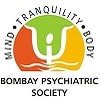drvikasdeshmukh@rediffmail.com

Treatment for Bipolar Disorder
Patients presenting with the above symptoms are evaluated in detail, history details are acquired from the patient’s relative and the mental state of the patient is noted. After making a formal diagnosis, treatment is started in the form of mood stabilising medications. These Mood stabilisers are the mainstay of therapy. Psychotherapy may be started in some cases. But majority of the cases are resolved through medications. Some patients, mainly those with severe illnesses, or relapses, or positive family history may need long-term treatment.
What to expect Post Bipolar Treatment:
Patients usually respond to treatment within 2 weeks or earlier. On medications, patient remain asymptomatic and are able to carry on with their normal lifestyle. Off medications, some patients may have a relapse of symptoms; in such cases, treatment is restarted. In patients with multiple relapses, prophylactic treatment to prevent future relapses is considered.
What is Bipolar Disorder
Bipolar Mood Disorder (BMD) is a mood disorder, which like its name suggests, is characterised by two opposite poles (bi-polar) of mood swings that are different from normal mood fluctuations. Bipolar mood disorder is characterised hence, by alternating phases of “depression” and “mania” or “hypomania”.
It is a biological illness common in young adults and more common in men, than women. A history of this illness in the family may increase the risk of developing the same in other family members.
- Depressive phases are characterised by the same symptoms that characterise the Major Depressive Disorder (MDD), i.e., depressed, sad or irritable mood, loss of interest in routine activities, or activities that were previously pleasurable, changes in sleep, appetite and sexual desire; difficulty in concentrating and decision-making, remembering things; negative thoughts about self, others and future, suicidal wishes, thoughts and behaviours and attempts.
- In the Manic phase, the person may have elated mood without any particular reason. The patient may have excessive physical activity, in the form of excessive talkativeness, over-religiosity, dancing, singing, displaying overfamiliarity to strangers, inappropriate sexual behaviour due to loss of social judgement. They may feel a decreased need for sleep; so despite hardly sleeping, they may display a lot of energy and excessive confidence. They may have excessive mental activity, in the form of making big and elaborate plans, spending money unnecessarily, getting into foolish investments, getting involved in risk-taking behaviours, like consuming substances, drunk-driving, sexual encounters, etc. They may have false beliefs, regarding possessing special powers and having special connections to famous persons, etc. Sometimes, patient may become aggressive or abusive towards family members. The person is unable to carry out normal activities of daily living.
- Hypomanic phase, though characterised by similar features is lesser in severity and patient may not require hospitalization. The patients social and occupational activities may remain unaffected.
Contact US
125, First floor, Arenja Arcade, Above Domino’s Pizza, Beside Kshirsagar Hotel, Sector 17, Vashi, Navi Mumbai Maharashtra – 400703.
call 9987 1281 48
Request AppointmentCopyright © All Rights Reserved, By Manovikas Clinic

